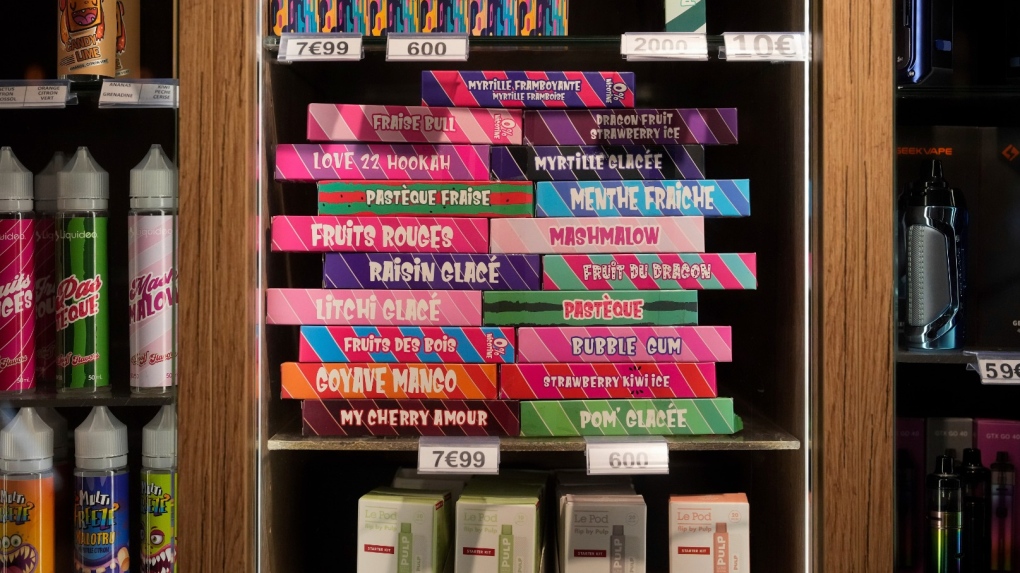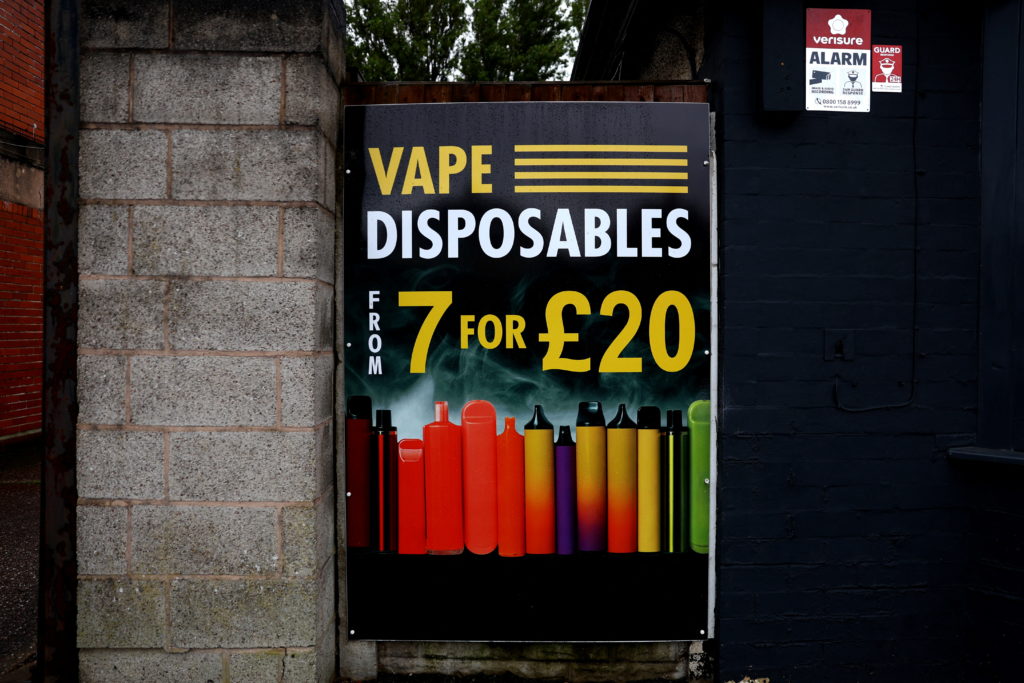To safeguard the health of the youth and address environmental concerns, the French parliament is currently deliberating a ban on single-use disposable electronic cigarettes, often favored by teenagers for their appealing flavors.

Disposable Electronic Cigarettes Face Potential Prohibition in France’s Legislative Discussions (Photo: CTV News)
Environmental and Health Implications of Disposable E-cigarettes
In a recent report featured by US News, in December 04, 2023, Prime Minister Elisabeth Borne and Health Minister Aurelien Rousseau are advocating for the prohibition of disposable electronic cigarettes, highlighting the potential risks associated with these increasingly popular disposable products known as “puffs.” The proposal, expected to be voted on in the National Assembly, holds the promise of ushering in a ban that could be implemented as early as September 2024.
Disposable electronic cigarettes, though not containing tobacco, have raised alarms due to their environmental impact. Composed of plastic, these single-use, disposable electronic cigarettes incorporate a lithium battery and heavy metals like cobalt and bromine.
Furthermore, the pods within these devices contain nicotine, a highly toxic substance. Marion Catellin, president of the Alliance Against Tobacco, emphasizes the environmental hazards posed by these disposable electronic cigarettes puffs, emphasizing the need for a ban on the grounds of both health and environmental conservation.
READ ALSO: Respiratory Syncytial Virus Takes Center Stage In Winter 2023: Comprehensive Guide To Symptoms, Treatments, And Vaccination Shot
Global Initiatives and the Proliferation of Disposable E-cigarettes in the U.S. Market
According to the news published by AP News, the move to ban disposable electronic cigarettes in France aligns with a global trend, as countries like the UK, Ireland, and Germany consider similar measures, while New Zealand and Australia have already implemented restrictions. The surge in popularity of disposable electronic cigarettes in the U.S., particularly from Chinese manufacturers, comes in the wake of the Food and Drug Administration’s 2020 ban on flavored reusable e-cigarettes such as Juul.
Despite the ban, disposable products circumvented the flavor restrictions, leading to their widespread adoption and presenting a broader challenge in regulating the evolving landscape of disposable electronic cigarettes.
READ ALSO: Leading West Virginia Grants $1M Program To Anti-Abortion Pregnancy Center Coalition
























